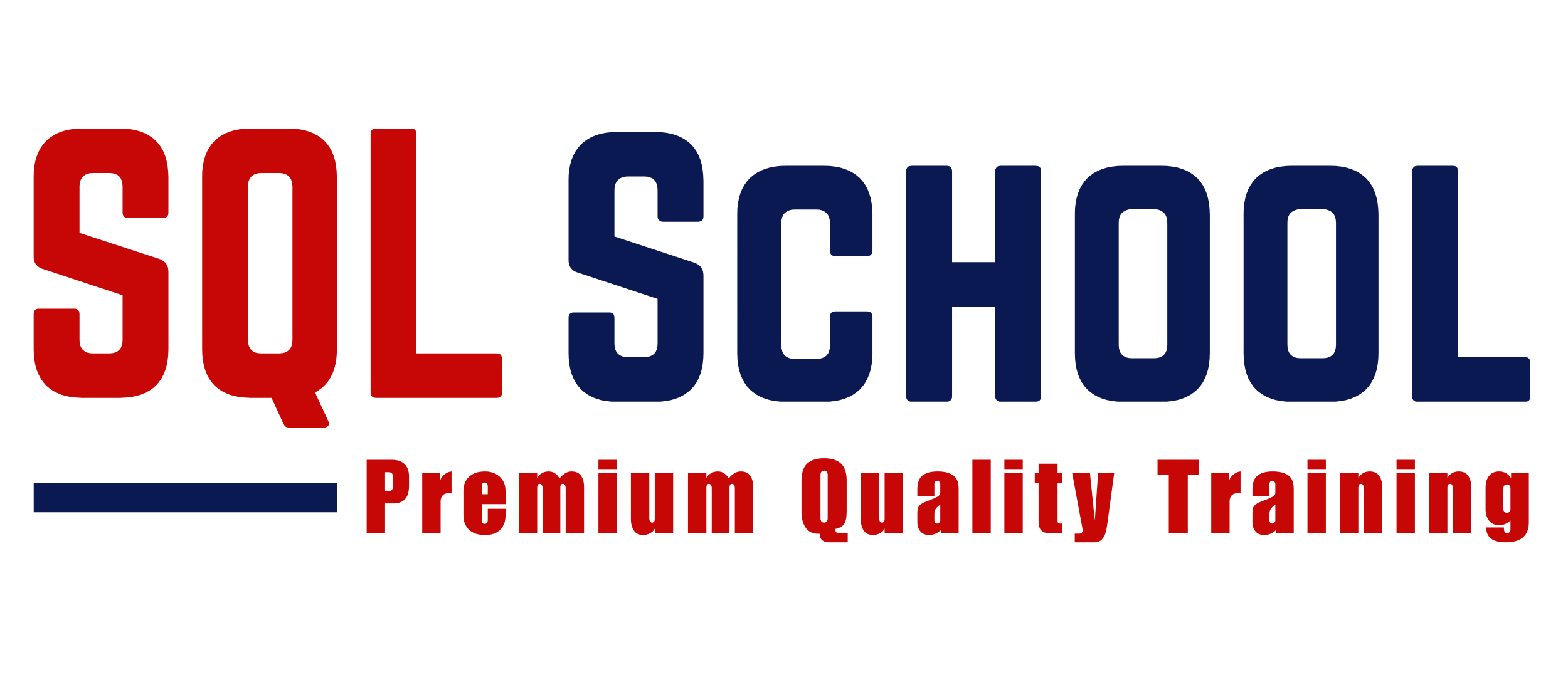Why Becoming a “Database Tester” Can Future-Proof Your Career
When it comes to tech roles that combine precision, logic, and real-world impact, one of the most underrated — but increasingly valuable — is the “Database Tester”.
In a world that runs on data, accuracy isn’t just important — it’s mission-critical. Every time you see an invoice, a report, or a dashboard, there’s a database behind it. But how do you make sure the data inside is reliable? That’s where the “Database Tester” comes in.
If you’ve ever been curious about breaking into tech or are exploring niche areas within QA or data, this role might be the smartest move you can make.
What does a database tester do?
A Database Tester is responsible for verifying the accuracy, quality, and reliability of data stored in a system. Unlike traditional testers who focus on user interfaces, these professionals dive deep into the backend.
Key tasks include:
Validating {data consistency checks} between source and target systems
Writing and executing {SQL queries for testing} data inserts, updates, and deletions
Verifying {referential integrity testing} and data constraints
Testing stored procedures and triggers with {unit testing in SQL}
Supporting {data migration testing process} during system upgrades or transfers
In simple terms, they’re the final quality checkpoint before data reaches the end user or executive dashboard.
Essential skills for database testing professionals
You don’t need to be a hardcore coder, but a good Database Tester must have a solid understanding of how data flows through systems.
Must-Have Skills:
SQL proficiency — You should be comfortable writing complex queries
Understanding of relational databases like MySQL, SQL Server, or Oracle
Hands-on with data validation testing and schema testing
Familiarity with backend testing for databases
Strong analytical and problem-solving mindset
Bonus: Knowing ETL testing or data-driven testing gives you an edge in industries like finance, healthcare, or e-commerce.
Most popular tools used by database testers
In today’s tech ecosystem, knowing the right tools can accelerate your testing workflow and enhance accuracy.
Common Tools:
SQL Server Management Studio (SSMS) – A go-to for running test queries and exploring schemas
Oracle SQL Developer – Ideal for complex data validation testing tasks
DbVisualizer, Toad, or DBeaver – Universal tools supporting multiple databases
Apache JMeter or Selenium with JDBC – For test automation for databases
Talend or Informatica – Widely used for ETL testing in data warehouse projects
Tools don’t replace skill — they amplify it. Choose what aligns best with the databases your organization uses.
Different types of database testing
Database testing isn’t a one-size-fits-all process. It varies depending on the application, data complexity, and business objectives.
Main Categories:
Structural Testing – Verifying tables, columns, data types, and schema validation
Functional Testing – Checking stored procedures, triggers, and test cases for stored procedures
Data Integrity Testing – Ensuring relationships, keys, and constraints are correct
Performance Testing – Measuring query speed and performance testing of databases
ETL Testing – Validating data flow and transformation in data warehouses
Each of these types plays a role in ensuring smooth, error-free data handling.
Database testing vs application testing
This is where a lot of people get confused — and it’s an important distinction.
| Feature | Application Testing | Database Testing |
|---|---|---|
| Focus | Frontend/UI and functionality | Backend data and logic |
| Tools | Selenium, Cypress | SSMS, Oracle SQL, JMeter |
| Outcome | User-facing features work | Data is accurate and consistent |
| Test Data | Simulated user inputs | Real/live datasets |
While UI testers catch visual and user flow issues, Database Testers ensure that what powers the app — the data — is solid.
How to start a career as a database tester
If you’re already in tech — maybe in QA or support — you’re closer than you think.
Suggested Path:
Learn SQL: Focus on joins, subqueries, and aggregate functions.
Understand data modeling basics: Tables, keys, constraints.
Practice writing test cases: Include scenarios for data integrity verification.
Get hands-on with tools: Start with SSMS, then explore Oracle or Toad.
Work on small projects: Try testing an open-source or sample HR database.
Consider a certification: ISTQB (Database Testing) or other QA certifications can boost your credibility.
And remember — no business runs without data. Learning how to test it makes you indispensable.
In a world that’s increasingly data-driven, becoming a “Database Tester” puts you right at the heart of business-critical systems. You’re not just catching bugs — you’re protecting insights, decision-making, and strategy.
Whether you’re a manual tester looking to specialize, or someone aiming to shift into a high-demand niche — database testing offers stability, skill growth, and career flexibility.
Start now. Because when data flows right, everything else follows.
🎓 Want to become a Database Tester and ensure data accuracy, integrity, and performance?
Join SQL School — India’s most trusted platform for real-time Database Testing training.
✅ Learn SQL, test case design, data validation, ETL testing, and automation tools
✅ Work on real-time projects with hands-on testing scenarios and defect tracking
✅ Master database testing strategies across OLTP, OLAP, and data warehouse systems
📞 Call now at +91 9666640801 or visit 👉 SQL School for a FREE demo session!
SQL School – Your Real-Time Guide to High-Quality Data Testing and Validation.
